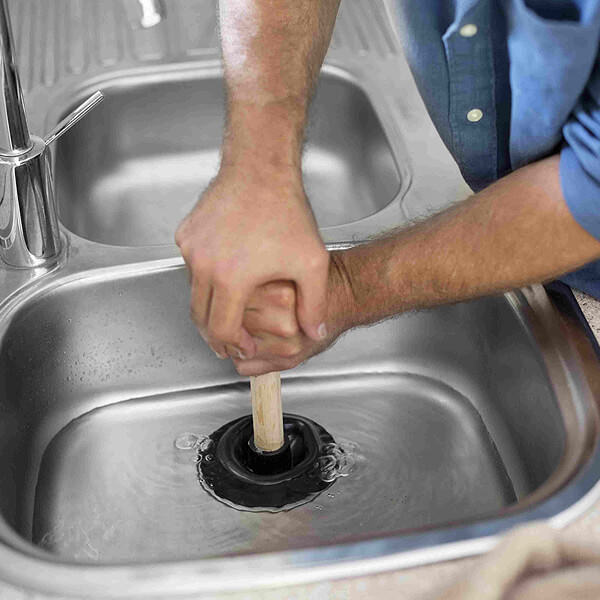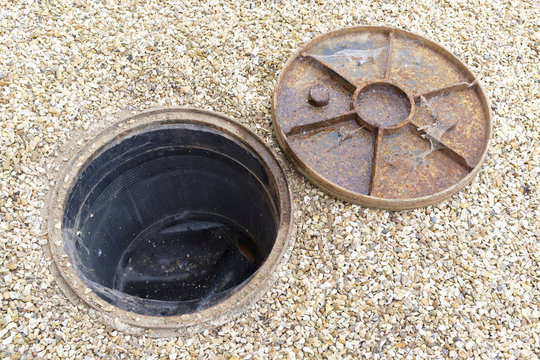We've unearthed this post involving 8 Tips For Clearing A Blocked Drain listed below on the net and decided it made sense to relate it with you here.

Introduction
Dealing with a blocked drain can be an aggravating experience, interrupting daily activities and possibly creating damages to your property. However, before reaching out to pipes specialists, there are actions you can take to attend to the concern yourself. In this overview, we'll discover do it yourself solutions and preventive measures to take on an obstructed drainpipe successfully.
Determining the Issue
The primary step in resolving a blocked drainpipe is identifying the indications. Slow water drainage, gurgling sounds, foul odors emanating from drains, or water support up prevail indications of a blocked drain. Determining these indications early can assist prevent further complications.
Choosing the Right Pipes Service
When choosing a pipes solution, consider variables such as experience, licensing, and customer reviews. Choose a reputable plumbing technician with a record of high quality craftsmanship and clear prices methods.
Price Considerations
The price of specialist drain cleaning services can vary relying on the intensity of the obstruction and the plumber's rates. Demand quotes from numerous companies and ask about any additional charges to make certain openness and avoid surprises.
Security Precautions
When attempting do it yourself drainpipe cleansing, prioritize safety. Wear safety handwear covers and glasses to stay clear of contact with harmful chemicals or bacteria. Never ever mix various drain cleansing products, as this can generate unsafe fumes.
Situation Studies
Real-life examples highlight the efficiency of DIY options and the value of timely expert intervention in solving drainpipe clogs.
Typical Causes of Blocked Drains
Recognizing the aspects that add to drain obstructions is necessary for reliable resolution. Usual culprits consist of hair, soap residue, oil, food debris, and foreign objects like hygienic products or paper towels. Tree origins attacking underground pipelines can also create considerable obstructions.
DIY Solutions
For small obstructions, a number of do it yourself options can be efficient. Putting boiling thin down the drain can aid liquify grease and debris. Sodium bicarbonate and vinegar or a blend of salt and baking soft drink can serve as all-natural cleansers. Making use of a plunger or pipes serpent to displace obstructions is another alternative.
Tools and Equipment
Having the right tools accessible can make DIY drain cleaning up extra efficient. A plunger is a versatile tool for clearing blockages in sinks, toilets, and showers. A pipes serpent or auger can reach much deeper blockages, while drain cleaning chemicals can be used meticulously for persistent clogs.
Safety nets
To prevent future blockages, taking on preventive measures is important. Set up drain guards or filters to capture hair and debris before they get in the pipes. Frequently flush drains pipes with hot water to dissolve grease build-up, and avoid dealing with grease or solid waste away.
When to Call an Expert
While do it yourself remedies can solve small obstructions, particular indicators show the demand for specialist help. Relentless blockages, foul odors in spite of cleaning efforts, or numerous drains supporting simultaneously are warnings that necessitate skilled intervention.
Conclusion
By adhering to the pointers detailed in this overview, you can successfully tackle blocked drains and protect against future plumbing problems. Whether opting for DIY options or looking for specialist assistance, timely action is crucial to keeping a healthy and balanced pipes system and preserving the integrity of your home.
How to Clear a Clogged Drain Yourself (And When to Call In the Professionals)
What Can Clog a Drain
Dirt Skin flakes Hair Grease Soap scum Food Offset pipes Tree roots Small objects Mineral buildup DIY Tricks to Unclog a Drain
You can fix this! Once you have identified the source of the clog (or have a vague idea), you can try one or a combination of these fixes in order to clear your plumbing.
Wire Hanger or Snake
Untangle and clear out hair from a drainpipe with a homemade snake. Use a straightened-out wire hanger with a 90-degree angle hook to locate the clog and drag out any unwanted material.
Remember not to push the clog further down to where the wire hanger cannot reach! If you need to follow up with a plunger, give it a try. Your efforts might be more successful after it’s been wire-snaked.
If you want to get fancy and don’t have a wire hanger to spare, head to the store and pick up a hand-operated drain snake. You can get one for $10-$30. It may save you the hassle, and provide additional length to reach deep into the clogged pipe.
Plunger
A cup plunger has a suction cup attached to a wooden handle. The rubber creates a seal around the drain, and increases the pressure force of the plunger.
Plunge for 30-second increments to loosen the clog. This may need to be repeated over the course of 15-20 minutes. Once plunged, run the water to flush the remaining material out of the drain.
Remember– never use a plunger if you have used a chemical drain cleaner. These chemicals can splash up from the force of the plunger and cause serious injury or burns.
Boiling Water
Hot water can sometimes break up materials into a flushable amount. Dirt, grease, and soap buildup requires heat in order to unstick from surfaces.
Take your kitchen kettle and heat your water to a boil. Once it reaches a rolling boil, pour it directly down the drain into the blockage. Carefully follow with plunging, if necessary.
Don’t worry if this takes more than one try! It can often take multiple kettles and repeated plunging in order to clear a particularly stubborn clog.
Chemical Drain Cleaner
As a last resort, pick up a bottle of chemical drain cleaner. Drain-cleaning chemicals are potent, and not very good for the environment.
You may need to wear protective eyewear in gloves before handling your bottle of chemical drain cleaner. Follow the instructions printed on the bottle, and flush with water as soon as the instructions allow. Do not follow with plunging.
Baking Soda and Vinegar
As a safer alternative to chemical drain cleaner, baking soda and vinegar can create a chemical reaction that clears tough clogs.
Combine one cup of cleaning vinegar with one cup of boiling water, and set aside. Once you have done this, pour half a cup of baking soda down the drain. Give the baking thirty seconds to settle and cover a large portion of the problem drain.
Following the baking soda, pour down your vinegar and hot water solution. Once the vinegar and baking soda combine, the mixture will bubble and fix. Let this reaction fizzle in the drain for about an hour.
After an hour, follow with a kettle’s worth of hot water. The heat and liquid should flush out any remaining material.
When to Call a Plumber
If your DIY attempts haven’t cleared your clog drain, it’s time to call in a professional. It’s not worth losing access to your kitchen sink or high-traffic bathroom. A clog in a vital area can keep you from the things you’d rather be doing, and derail your routine.
Anytime a clog is causing water to spread is a time to call in a plumbing service. What starts out as a little bit of water can quickly grow into serious, expensive water damage.
Additionally, a serious clog can result in burst pipes or serious leaks. Make sure you know when to take it seriously!
https://myguysnow.com/how-to-clear-a-clogged-drain-yourself-and-when-to-call-in-the-professionals/

As a fervent reader about Tips for Dealing with Clogged Drains and Sewer Lines, I figured sharing that post was worthwhile. For those who enjoyed our blog post kindly make sure you remember to pass it around. I love reading our article about .
Call